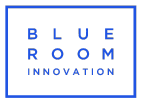

Blockchain has sparked enthusiasm among circular economy experts due to its ability to track materials and enhance precision in information sharing within a network. In addition to its applicability in the circular economy, this technology has been successfully used in various areas, from empowering refugees to contributing to cancer research. With its smart contracts and cybersecurity, blockchain has the potential to transform trade. According to Gartner, blockchain-generated revenues are expected to reach $3.1 trillion by 2030, reflecting its enduring success.
Blockchain and the Circular Economy
Blockchain technology holds key value for the circular economy by enabling the tracking and efficient circulation of materials along supply chains. It assists in the reuse, remanufacturing, recycling, and composting of materials, facilitating informed decision-making and sharing responsibility for material flows. While its widespread implementation has been limited due to the need for collaboration and operational changes, the transformative potential of blockchain in the circular economy remains relevant and promising.
La adopción de la tecnología blockchain en la economía circular puede acelerarse, especialmente en Europa, debido a los cambios legislativos que requieren la creación de pasaportes digitales para productos. Aunque la UE no ha especificado el uso de blockchain, se considera que esta tecnología tiene las capacidades necesarias para los Pasaportes Digitales de Producto, lo que permitiría la trazabilidad de componentes y datos verificables sobre durabilidad y capacidad de reparación. Esto impulsaría el valor financiero de los productos reacondicionados y promovería la toma de decisiones informadas para fomentar la reutilización, remanufactura y reciclaje. Sin embargo, para que la economía circular funcione de manera efectiva, se requieren incentivos económicos que impulsen a los productores a eliminar el desperdicio desde el inicio.
The potential of blockchain in the circular economy
Brown, a blockchain technology expert, sees its potential not only in regulatory compliance and cost savings but also in the subsequent stages of adoption. As companies close the loop in their supply chains using blockchain, they prioritize reuse, remanufacturing, and restoration, generating new sources of income and capturing previously wasted value. Increased material circulation also creates a currency for these pieces, encouraging their greater utilization. Blockchain enables the recording of location, quality, ownership, and payments, empowering actors at each stage of the product to maintain maximum value.
However, Ken Webster, a researcher at Cranfield University and former Head of Innovation at the Ellen MacArthur Foundationemphasizes the importance of knowing the origin, composition, and destination of materials in a circular economy. He believes that the value of blockchain lies in improving "total product responsibility" and driving companies to redesign products and systems for optimal material recovery. By promoting transparency and accountability, blockchain can drive upstream innovation and minimize environmental impact.
The influence of government policy
Government policy is key to harnessing the benefits of blockchain technology. By using blockchain and imposing taxes on non-renewable resources, companies can transform their business models. This includes financial incentives to reduce waste and pollution, thereby aligning corporate strategies with a circular economy. With blockchain, companies can also implement schemes where they pay for recovery costs at the end of the product's life cycle, as well as charge manufacturers for their carbon emissions. If blockchain evolves to allow for these systems, companies will be able to assume full responsibility for the materials used in their products, closing the loop of the supply chain and maximizing value flows. Ultimately, blockchain could drive the transition towards a circular economy.
In conclusion, blockchain has the potential to drive the transition towards a circular economy by enabling material traceability, promoting reuse and recycling, and improving total product responsibility. With appropriate government policy and the right economic incentives, this technology can revolutionize how we manage resources and close the loop of the supply chain. Blockchain is a powerful tool for advancing towards a more sustainable and efficient economy.
Products
Digital Product Passport
Descentralized platforms
Descentralized Identity
Verificable Credentials
About us
Team
Methodology
Our Mission
Connect
Cristòfol Grober 4, local 35
17001 - Girona
info@blueroominnovation.com
Follow us
Copyright © 2024 Blue Room Innovation Privacy Policy - Legal Warning - Cookies Policy